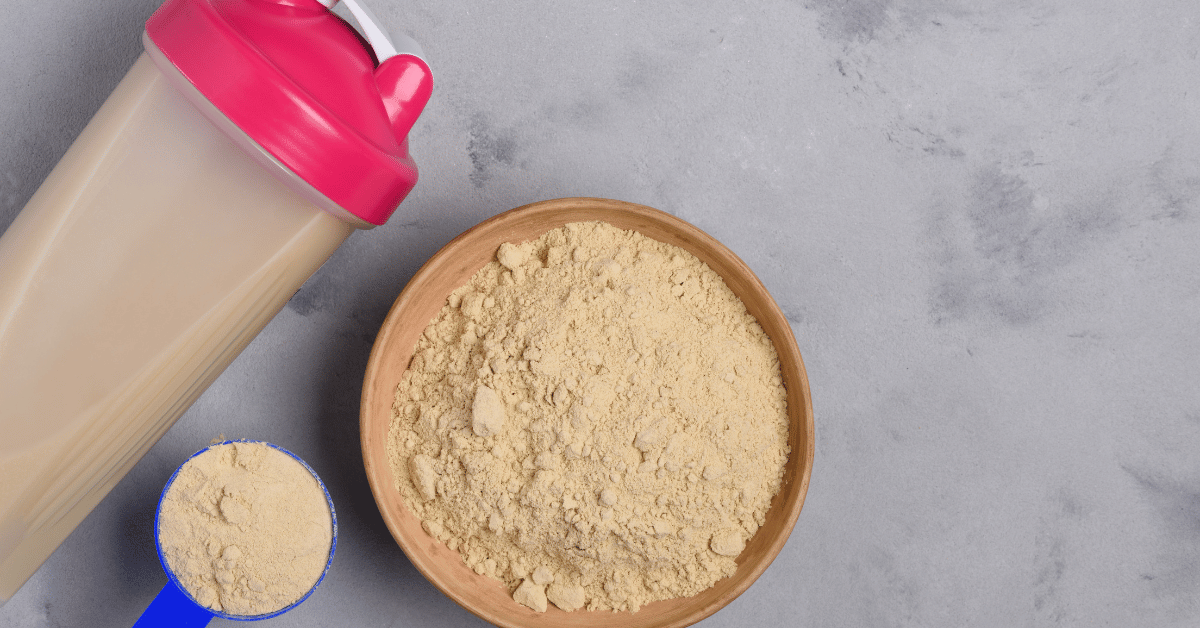Building a muscular and well-defined physique is a goal that many individuals aspire to achieve. However, the journey towards a muscular body requires more than just hitting the gym and lifting weights. Proper nutrition is essential to any bodybuilding program, and a bulk bodybuilding diet is designed to support muscle growth and recovery.
Bulking is a method of bodybuilding where you eat to grow muscle and put on weight. The approach to bulking may vary based on individual objectives and body composition, and it is essential to strike a balance between excessive or insufficient food intake.
The present article presents several important principles that can assist in weight gain. The guide focuses on the essentials of bulk bodybuilding and provides recommendations on how to achieve an appropriate equilibrium between consuming excessive or inadequate amounts of food.
What is bulk bodybuilding?

Bodybuilders commonly use the term “bulking” to describe a phase of strength training accompanied by a progressive increase in caloric intake to gain weight and build muscle mass.
In the process of bulking, individuals need to consume more calories than their maintenance level. Bodybuilders typically aim to consume 300-500 calories per day.
Feeding extra calories to the body to bulk up does not mean eating anything and everything. It is crucial to understand the science behind muscle growth in order to do it effectively.
Building new muscles requires a lot of energy, provided by calories. To achieve muscle growth, it is essential to maintain an anabolic state, meaning the body must have enough fuel to build and repair tissues. Inadequate caloric surplus can lead to a catabolic state, where the body breaks down fat and muscle. Hence, consuming high-quality, nutrient-dense foods is essential to support muscle growth and avoid the risk of muscle loss.
Basic Principles of Bulking

- The primary goal of bulking is to determine your calorie requirement.
- You can estimate your maintenance calories using a calorie calculator in which you need to mention your age, height, weight, gender, and physical activity level.
- Once you have your maintenance calories, consider increasing 10-20% above the same. For example, if you must consume 2000 kcal per day to maintain weight, take between 2300-2600 kcal instead daily. If you start noticing the difference in body weight, continue with the same number of calories; otherwise, the calorie load can be increased further every week.
You must focus on consuming high-quality, nutrient-dense foods rich in protein, carbohydrates, and healthy fats.
Clean Bulk vs. Dirty Bulking

A clean bulk, also known as a lean bulk, is a diet and exercise program designed to promote muscle gain while minimizing excessive fat gain. This approach involves carefully monitoring calorie intake and food choices to ensure the body receives the nutrients it needs to build muscle while avoiding excess calories and unhealthy foods that could lead to fat gain.
On the other hand, there is no limit to calorie intake and type of foods during dirty bulking. The person aims to gain as much weight as possible despite body fat. This strategy can result in more fat gain than muscle and side effects like lethargy and elevated blood glucose and cholesterol levels.
Macronutrient Calculation

The macronutrient ratio plays a significant role during bulking. Once you establish the total number of calories your body requires to bulk, divide them carefully under macronutrients – carbohydrates, proteins, and fats.
Experts suggest:
- 40-60% of calories are from carbs.
- 25-35% of calories come from proteins.
- 15-25% of calories are from fats.
One can alter these ratios depending on the body type (ectomorph, mesomorph, or endomorph) and dietary needs.
It is best to consult a registered dietitian or a sports nutritionist to determine the ideal macronutrient ratio for your needs.
The bulking phase typically lasts 10-14 weeks and requires high energy levels for heavy lifting and weight training, making carbohydrates crucial for maintaining high glycogen stores. Consuming carbohydrates can also promote muscle growth by triggering insulin spikes. However, it is essential to obtain carbohydrates from nutrient-dense sources like whole grains and cereals rather than junk food and sugary beverages, which are not recommended for a clean bulk.
High carbs with moderate proteins and fats are the key.

1. Protein
Consuming sufficient protein is essential to achieve maximum muscle building during the bulking phase. It is recommended to prioritize high-quality protein sources, which have an excellent amino acid profile and contain all essential amino acids, including BCAAs that promote anabolism.
Individuals can use a protein calculator or consult a registered dietitian to determine the optimal protein intake. Once the protein requirement is established, it is advisable to divide it across multiple meals and incorporate protein-rich foods in each meal to ensure a steady supply of amino acids throughout the day for muscle building and repair.
2. Fat
Fat intake is equally important during the bulking phase, as it is a significant energy source required to absorb fat-soluble vitamins. It is recommended to obtain fats from nutrient-dense sources, such as fatty fish, avocados, olive oil, and coconut oil, packed with good fatty acids.
It is important to avoid unhealthy junk and fried foods as they may lead to high blood cholesterol levels and visceral fat accumulation, which can be detrimental to health. Therefore, it is advisable to prioritize healthy fats from whole food sources to promote muscle growth while maintaining overall health.
3. Carbohydrates
Carbohydrates are the primary energy source for the body. They provide the fuel needed to power through intense workouts. Complex carbohydrates, such as whole grains, fruits, and vegetables, are preferred over simple carbohydrates, such as sugar and refined flour. Complex carbohydrates provide sustained energy and are rich in fiber, vitamins, and minerals.
Workout schedule for bulking

Having a well-designed workout schedule is crucial for achieving optimal results during the bulking phase.
- Lifting heavy weights is necessary for muscle growth during the bulking phase.
- It is recommended to consult with a qualified fitness professional to design a workout schedule tailored to your body type and fitness level.
- Incorporating variety into your workouts is essential to prevent your body from adapting to the same exercises.
- Mixing up your exercise type, intensity, or duration can challenge your muscles and promote adaptation, evolution, and growth.
Foods to be included in a bulking diet meal plan

When bulking, focusing on consuming high-quality, nutrient-dense foods is essential.
Here are some food choices to consider:
1. Lean Protein
Lean protein sources like chicken, fatty fish such as salmon, sardine, tuna, mackerel, codfish and tilapia, turkey, and plant-based proteins can support muscle growth and recovery.
Complex carbohydrates like whole grains, sweet potatoes, quinoa, and fruits provide essential carbohydrates that fuel workouts and support muscle growth.
2. Healthy Fats
Healthy fats in foods such as walnuts, almonds, peanuts, pumpkin seeds, flaxseeds, sunflower, melon, and chia seeds can support hormone production and aid nutrient absorption.
3. Fresh Fruits & Veggies
Consuming a variety of fruits and vegetables can provide essential vitamins, minerals, and fiber that support overall health and well-being. Some examples include apples, bananas, avocados, pears, plums, berries, melons, papaya, oranges, grapes, kiwi, peaches, pineapples, pomegranates, spinach, mustard leaves, broccoli, bathua, bottle gourd, mushrooms, peas, bell peppers, capsicum, cabbage, potatoes, carrots, beetroots, and sweet potatoes.
4. Whole Foods
Whole foods, such as oats, multigrain bread, whole wheat, rice, maize, quinoa, and millet, are nutrient-dense and should be consumed to achieve a healthy bulking diet. It is essential to focus on consuming minimally processed foods rich in nutrients to support muscle growth and overall health.
Including whole pulses, beans, legumes, whole eggs, lean meat, and chicken in the diet can also support muscle growth and recovery. Also Consuming nuts and seeds and oils and nut butter like olive oil, mustard oil, coconut oil, ghee, almond, and peanut butter can benefit the body.
5. Dairy Products
Dairy products such as milk, cheese, curd, yogurt, and cottage cheese can also be included in a bulking diet to provide essential nutrients.
Foods to avoid or include in moderation

When bulking, it is essential to consume a high-calorie diet to support muscle growth, but not all calories are created equal. Certain foods can provide essential nutrients and promote muscle growth, while others can lead to excess weight gain and hinder progress.
Here are some foods to avoid or consume in moderation when bulking:
1. Fried, junk, and processed foods.
These foods are typically high in calories, unhealthy fats, and sodium and provide little nutritional value. Consuming too much of these foods can lead to excess weight gain and negatively impact overall health.
2. Sugary foods and beverages.
Drinks such as soda, sports drinks, sweetened teas, and sugary snacks like candy and pastries are high in calories and provide little nutritional value. Consuming too much sugar can lead to weight gain and increase the risk of chronic diseases such as diabetes.
3. Alcohol
While alcohol can be consumed in moderation, excessive alcohol consumption can hinder muscle growth and lead to excess weight gain. Alcohol provides empty calories and can negatively impact hormone levels essential for muscle growth and recovery.
Meal Planning Tips

Here are some meal-planning tips for bulking:
- Plan ahead: Plan your meals in advance and prepare your meals for the week. This will help you stay on track with your diet and avoid last-minute unhealthy food choices.
- Eat frequently: Eating frequently throughout the day can help to support muscle growth and maintain energy levels. Aim to eat every 2-3 hours and include a source of protein, complex carbohydrates, and healthy fats in each meal.
- Use portion control: While consuming more calories than you burn when bulking is essential, it is also important to practice portion control. Overeating can lead to excess weight gain and fat accumulation, hindering muscle growth.
- Drink plenty of water: Drinking enough water is essential for overall health and well-being. It also helps to keep you hydrated during intense workouts and aids in digestion.
- Consider supplements: While it is best to get your nutrients from whole foods, supplements can help to support muscle growth and recovery. Consult with a healthcare professional or a sports nutritionist before taking any supplements.
Supplements to fuel bulking.

Bodybuilders often use supplements to enhance their exercise performance and overall health. Here are some popular supplements that are commonly used during the bulking phase of bodybuilding:
1. Protein powders
To meet the high protein requirements, protein shakes are convenient and efficient, providing around 20-25 grams of protein per serving. The most commonly used protein powder is whey protein, but for those who prefer plant-based options, there are also plant-based protein shakes available.
2. Mass gainers or weight-gaining supplements
Weight gainers are beneficial for bulking as they provide a balanced ratio of all the macronutrients and supply around 1000 calories. Additionally, they may also contain vitamins and minerals to provide a health boost.
3. Creatine
Creatine supplements increase the energy supply required for muscles to lift more weight and work harder. If you decide to take this supplement, it is recommended to choose the creatine monohydrate form, which has been found to be the most effective based on scientific research.
4. Pre-workouts
Pre-workout supplements help improve endurance, strength, focus, and energy levels. These supplements can help increase strength and muscle pumps by providing the necessary support, enabling you to lift heavier weights and improve your physical performance beyond your regular capabilities.
Summing Up

Bulking involves consuming more calories than your body needs to build muscle mass, and focusing on nutrient-dense foods is essential for optimal health. Clean bulking is recommended over dirty bulking to avoid adverse health effects. Adequate sleep is necessary for proper recovery, and it’s essential to consult with a doctor before starting any particular diet if you have underlying medical conditions.
By following these basic principles and meal planning tips, you can achieve your bulking goals and support overall health and well-being. Remember, consistency and patience are key to achieving long-term results.
What to avoid while bulking?
You can support muscle growth by eating a diet rich in whole foods. Protein is especially important for building muscle, as are healthy carbohydrates and fats. Avoid low-nutrient foods and drinks like sugar-sweetened foods and drinks, refined carbs, and alcohol on a muscle-building diet.
How much protein should I eat while bulking?
Protein recommendations during bulking are typically 1.2-2.0 g/kg (0.6-0.9 g/lb.) (1). For a 150 lb. person that’s 90-135 g of protein per day.
How long should you bulk for?
Most people can have highly effective cutting cycles in 8-12 weeks, but an effective bulking cycle should be 16-26 weeks on the low end and upwards of an entire year on the longer end. You can see some progress after 6-8 weeks, but it will be marginal, and extending your bulk beyond that is highly recommended.
Should I drink water while bulking?
DO keep your muscles hydrated; this is extremely important for muscle gain and for strength. When your muscles are dehydrated, they cannot perform the same contractions during your bulking workout routine as well as when they are hydrated.
What is the best ratio for bulking?
The ideal bulking macros are to get around 20–30% of our calories from protein, 50–60% from carbs, and 20–30% from fat.
Can you bulk by just eating protein?
After all, your muscles are made of protein, and your body requires adequate protein in the diet in order to have the building blocks it needs to build up muscle mass. But protein alone won’t do. You need to pay attention to the rest of your diet and exercise routine as well.


